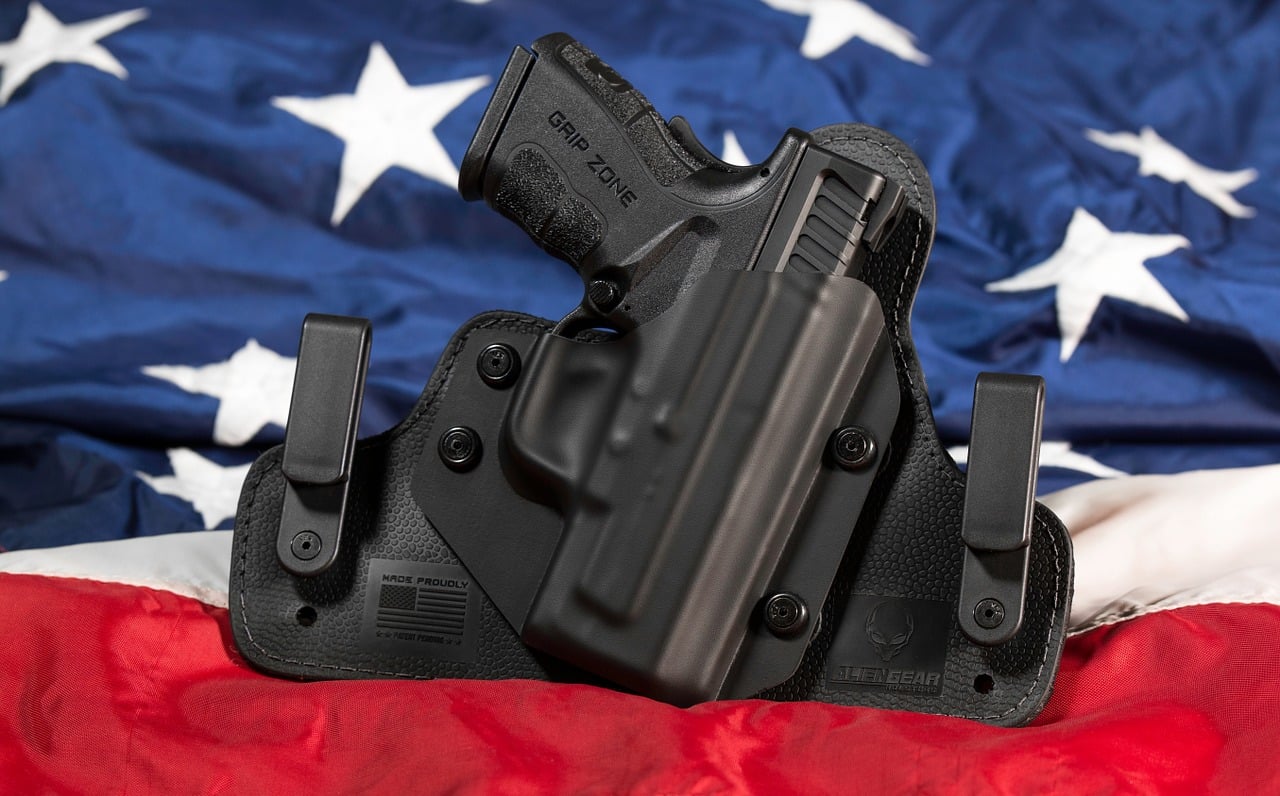Taking people’s guns away first, and only then providing them with a due process hearing, sounds a bit like Alice in Wonderland’s “Sentence First – Verdict Afterwards,” but it may be perfectly logical and legal under the circumstances.
In any event, the U.S. Supreme Court has repeatedly authorized depriving persons of liberty or property without first according them a full trial-type due process proceeding – which comes later – notes public interest law professor John Banzhaf, who teaches many of these fundamental Supreme Court due process cases.
For example, although the Constitution provides “nor shall any State deprive any person of life, liberty, or property, without due process of law,” there are many situations in which the deprivation or termination must take place before there is time for a full evidentiary hearing in court – what some term as a “due process hearing.”
The most common example, and one closely analogous to the seizure of guns which President Trump has suggested, occurs when there are any reasonable grounds to believe that a law enforcement official is not fit to continue patrolling with a firearm.
Based upon what may be even flimsy evidence, including unsupported allegations, his gun and police powers are taken from him immediately without any hearing whatsoever, The due process evidentiary hearing, at which his gun and position are often restored, may not occur for many weeks.
Similarly, public universities may and do summarily bar from their campus any professor, even those with tenure, if there is any reason to believe that he may post a risk to public safety; e.g., a claim, or even a rumor, that he has a gun in his office. Such barring decisions usually have to be made very quickly, long before there is time for an investigation, much less an evidentiary due process hearing.
That hearing occurs subsequently, and if the evidence does not support the adverse action, the professor is then allowed to return to campus. But the taking occurs long before any hearing is held.
The U.S. Supreme Court has repeatedly recognized this principle; an exception to the general rule that an evidentiary hearing, often before a court, must occur before a deprivation can take place.
For example, in Mathews v. Eldridge, the Court held that “We conclude that an evidentiary hearing is not required prior to the termination of disability benefits and that the present administrative procedures fully comport with due process.”
Similarly, in Cleveland Board of Education v. Loudermill, the Supreme Court held that, although the job of a public employee was entitled under the Constitution to due process protection, “All the process that is due is provided by a pretermination opportunity to respond” to the accusations made against him, plus an evidentiary due process hearing which could occur weeks or even months later.
Thus the Supreme Court has upheld a “take-first and due-process evidentiary hearing later” procedure, even in cases where the risks of not acting promptly do not involve public health or safety.
In contrast, where there is some reasonable basis for a belief that a minor might have guns, and that he might be considering using them to kill or injure fellow students or teachers, courts are likely to find the need to protect life and public safety so compelling that the student may be deprived of his guns first, provided there is an evidentiary due process hearing subsequently.




